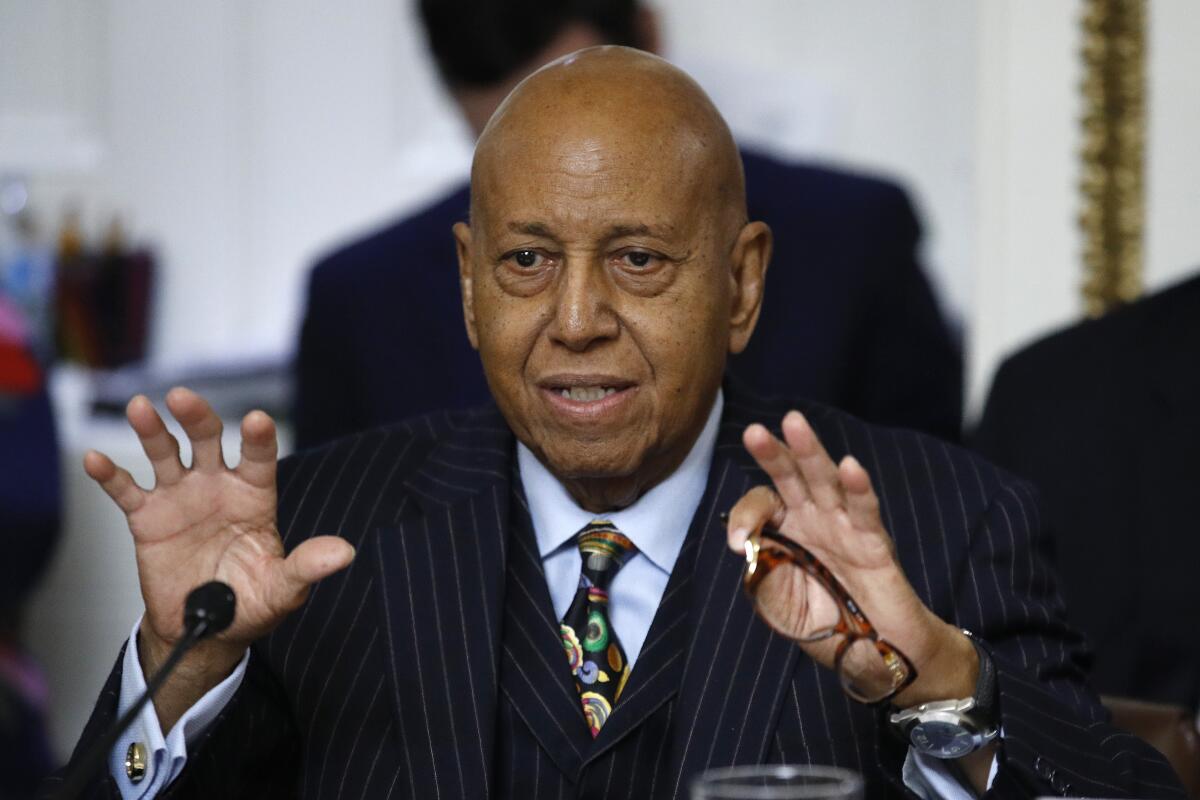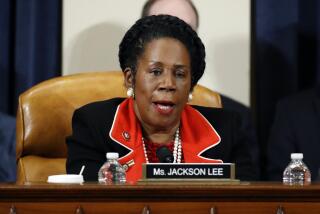Longtime U.S. Rep. Alcee Hastings of Florida dies at 84

- Share via
FORT LAUDERDALE, Fla. — Rep. Alcee Hastings, the fiercely liberal longtime Florida congressman who was dogged throughout his tenure by an impeachment that ended his fast-rising judicial career, died Tuesday. He was 84.
Hastings’ death was confirmed by his chief of staff, Lale M. Morrison. Hastings, a Democrat, announced two years ago that he had pancreatic cancer.
Hastings was known as an advocate for minorities, a defender of Israel and a voice for gays, immigrants, women and the elderly. He held senior posts on the House Rules Committee and the Helsinki Commission, which works with other countries on a variety of multinational issues.
But his impeachment remained a nagging footnote. It was repeatedly invoked in news accounts and seen as derailing his ambitions for a greater leadership role.
“That seems to be the only thing of significance to people who write,” Hastings told the Associated Press in 2013, predicting that the impeachment would be in the lead paragraph of his obituary.
Despite his seniority, Hastings was passed over for the chairmanship of the House Intelligence Committee when Democrats took control of Congress in 2006. But, as he did time and again throughout his life, he insisted his fight wasn’t over and that he wouldn’t be discouraged.
“Sorry, haters,” he said when not chosen for the intelligence posting, “God is not finished with me yet.”
Under Florida law, Gov. Ron DeSantis will call a special election in the coming months to fill the vacancy. Hastings’ South Florida district is overwhelmingly Democratic — he received 80% of the vote in November.
Hastings’ death, meanwhile, lowers the Democrats’ majority to a scant 218-211 in the House. Their narrow margin requires the party to muster nearly unanimous votes to push legislation through the chamber, and is bolstering Republican hopes for capturing House control in the 2022 elections.
Born Sept. 5, 1936, in Altamonte Springs, Fla., a largely black Orlando suburb, Hastings was the son of a maid and a butler. He attended Fisk University and Florida A&M. After earning his law degree he went into private practice, frequently taking on civil rights cases pro bono. He made an unsuccessful bid for the Senate in 1970, then earned a state judgeship.
In 1979, President Carter named him to the federal bench. He was the first Black person to hold a federal judgeship in Florida since Reconstruction.
From the start, his career was marked by controversy. His harsh criticism of President Reagan, his appearance at a rally in 1984 for then-presidential candidate Jesse Jackson and other moves considered unusual for a sitting federal judge raised questions about his impartiality. But Hastings insisted he was doing nothing wrong.
“Outside the courtroom, I speak out because I’m a citizen and I have the interests of a great number people of this country at heart,” he said. “I think it’s better to have public officials express themselves. I don’t think being a judge means I’m neutered.”
It wasn’t long, though, before his judicial career was derailed. He became the first sitting U.S. judge tried on criminal charges.
Along with Washington lawyer William Borders Jr., Hastings was accused of soliciting a $150,000 bribe from two convicted racketeers seeking to shorten their sentences. Hastings contended Borders acted without his knowledge in soliciting the bribe.
More to Read
Start your day right
Sign up for Essential California for the L.A. Times biggest news, features and recommendations in your inbox six days a week.
You may occasionally receive promotional content from the Los Angeles Times.






